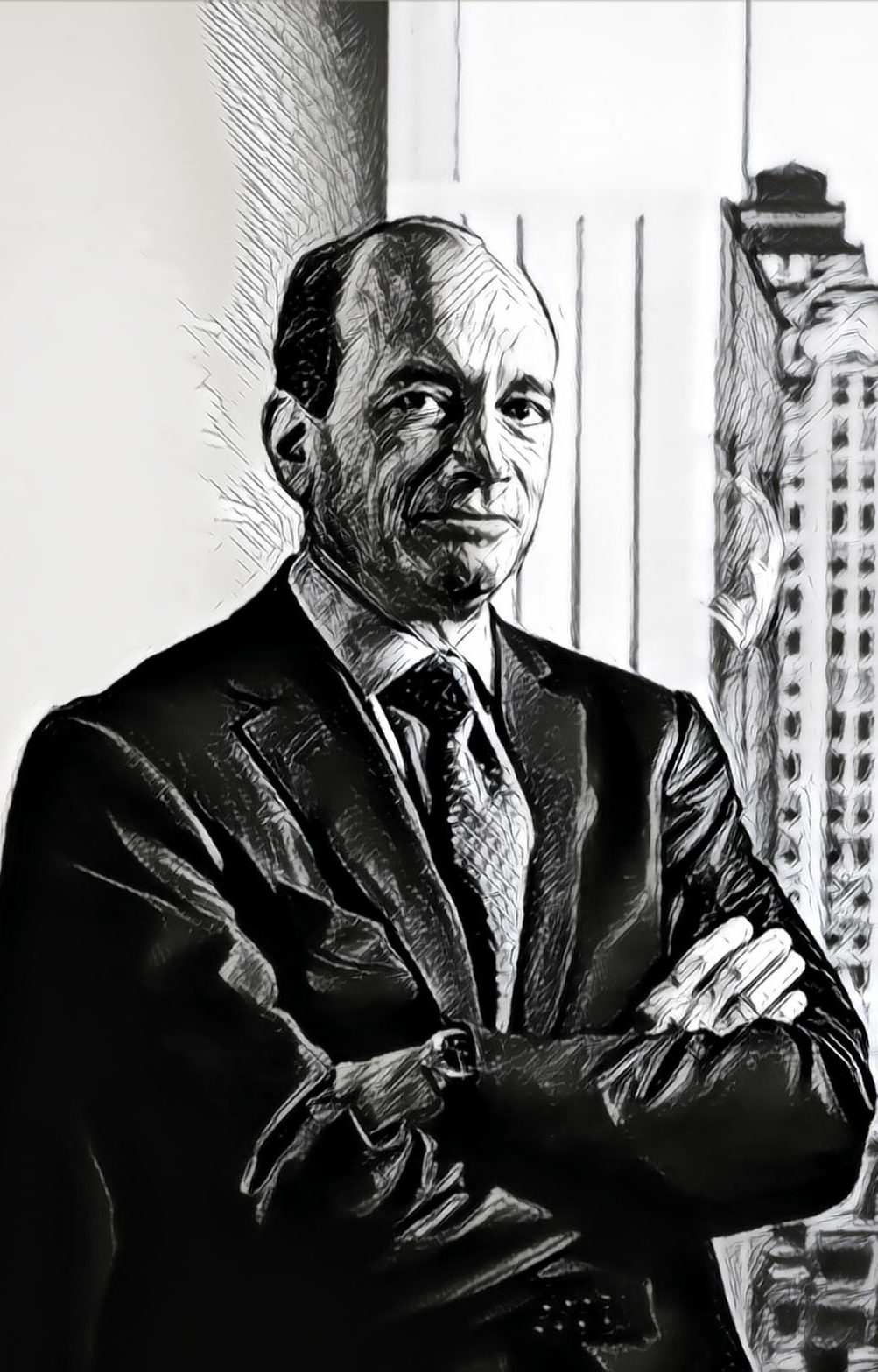The original article was written by Colin Richardson.
The year was 1951, and a young deep value investor sat on the campus of Columbia University and read a copy of Security Analysis. That investor, later becoming known as the Oracle of Omaha, was Warren Buffett. It was times like those that Buffett calls the most beneficial to his investing career.
In fact, he has revealed that at the time, he would read between 600 to 1,000 pages every day. He has carried this devotion to the written word throughout his career, continuing to dedicate up to 80% of his day reading books, reports, newspapers, and everything of the like.
Clearly, Buffett sees something valuable in reading, but do any other value investors have a similar mindset? If so, what books would they recommend for a deep value investor?

Deep Value Investing Books? Take a Cue From These Bookworms
Believe it or not, there are a couple investors that compete with Buffett for the title of most avid reader. Both also join him atop the list of the greatest value investors of all time.
The first is Buffett’s right-hand man, Charlie Munger. The chairman and vice chairman of Berkshire Hathaway spend a lot of time reading together. Munger has commented on their passion for reading: “You could hardly find a partnership in which two people settle on reading more hours of the day than in ours.”
This is extraordinary, considering the pair are in charge of a $500 billion corporation. It provides evidence to the passive approach the two take with Berkshire Hathaway.
On his own, Munger is known as an independent intellect. While most of his peers are drawn to a good business or finance book, he explores unsuspected topics. For example, two of his favourites are Deep Simplicity: Bringing Order to Chaos and Complexity and The Selfish Gene. The former is written by an astrophysicist, and the latter studies the evolution of humans.
Also outside of the investing genre, Munger has recommended biographies on the lives of Andrew Carnegie and Benjamin Franklin:
"I am a biography nut myself. And I think when you're trying to teach the great concepts that work, it helps to tie them into the lives and personalities of the people who developed them. I think you learn economics better if you make Adam Smith your friend. That sounds funny, making friends among 'the eminent dead,' but if you go through life making friends with the eminent dead who had the right ideas, I think it will work better for you in life and work better in education. It's way better than just giving the basic concepts."
Whatever deep value investing books you choose, Munger would suggest making reading a habit. He has seen a correlation between reading lots of material and intelligence. "
In my whole life, I have known no wise people (over a broad subject matter area) who didn't read all the time — none, zero. You'd be amazed at how much Warren reads — and at how much I read. My children laugh at me. They think I'm a book with a couple of legs sticking out."
All joking aside, the 94-year-old is one of the most intelligent and wise individuals on this planet. We should all take his advice seriously.
The next devoted reader that rivals Buffett has actually written three books himself. Towards the end of his career as a fund manager for Fidelity Magellan, Peter Lynch released One Up On Wall Street: How to Use What You Already Know to Make Money in the Market.
Following retirement, Lynch wrote Beating the Street and Learn to Earn: A Beginner's Guide to the Basics of Investing and Business.
Although proving to be a talented writer, Lynch was first a brilliant value investor. Over the course of 13 years, he averaged an impressive 29% annual return.
How did he spend most of his days?
You guessed it — reading. Among insiders, Lynch became known for reading at every opportune time possible. He used to catch a ride to the office every day, either by bus or a personal driver. This allowed him to read all the way there and all the way back.
At one point, Lynch started to become carsick from reading while in movement. Most of us would solve this issue by not reading in the car. However, Lynch was not willing to compromise. He consulted an eye doctor to discuss the problem. They discovered the vehicle’s ambient light would cause his eyes to expand, making him sick. The solution was to shine a spotlight on the page, allowing his pupils to constrict, and continue to read during travel.
The majority of Lynch’s reading time was spent studying prospective companies for his fund. This includes Securities and Exchange Commission-regulated 10-K reports. Any investor knows just how dense and tiresome these disclosures can be. He enjoyed them though and was committed to learning everything about a company before making an investment.
According to Lynch, investing really isn’t all that hard, but reading is a crucial skill to have.
“You don’t have to be a math whiz to be a successful investor in stocks. You don’t have to be an accountant, although learning the basics of accounting may help. You don’t have to be a Phi Beta Kappa or a member of the National Honor Society or Mensa. If you can read and do fifth-grade arithmetic, you have the basic skills.”
Value investors and reading go together like peanut butter and jelly. Charlie Munger and Peter Lynch are not the only ones who agree with the importance of interpreting the written word on a regular basis. Here’s what two other investors have to say.
“Read as much as you can about the markets, economy, and financial history. Never stop reading.” - Seth Klarman
“They [books] provided me with critical first steps in my education as a value investor and businessman, exposing me to a more practical way of thinking about human nature and how the world really works.” - Guy Spier
The consensus is in — reading every day makes you a better deep value investor.
Deep Value Investing Books For The Aspiring Investor
Now that we know the gurus are avid readers, let’s find out what they’re reading. Looking back through their interviews, lectures, writings, and shareholder letters, we can find some overlapping recommendations aimed at deep value investors.
Deep Value Investing Books:
- The Intelligent Investor by Benjamin Graham
Without a doubt, Graham’s bestseller is at the top of everyone’s list. Warren Buffett has said the day he first picked up a copy of the book was the luckiest of his life. It shaped his investment philosophy for the better.
- Security Analysis by Benjamin Graham and David L. Dodd
Close behind is a textbook written by the late Columbia Business School professors. It provides the roots from which value investing has grown on. As a deep value investor, this is a crucial book to read and understand. Within, Graham details his liquidation value strategy that so many follow to this day.
- Margin of Safety: Risk-Averse Value Investing Strategies for the Thoughtful Investor by Seth Klarman
Once again, this classic provides important insight into the value investing strategy. Don’t expect to purchase a hard copy of this book though as it sells for $1,400 online.
- Berkshire Hathaway Letters by Warren Buffett
The Berkshire Hathaway letters to shareholders are one of the greatest resources for value investors. However, a better resource for deep value investors is the Buffett Partnership Letters. They were written while he was still practicing strategies such as net-net investing.
- Contrarian Investment Strategies: The Classic Edition by David Dreman
If you ever needed a reason to zig when everyone else zags, this book provides it. It also reveals time-tested deep value strategies that can be implemented in today’s market.
- Deep Value by Tobias Carlisle
Carlisle has provided a great reference for deep value investors. A shorter but still extremely informative version of the book is The Acquirer’s Multiple: How the Billionaire Contrarians of Deep Value Beat the Market.
- What Has Worked in Investing by Tweedy Browne
The great deep value investor has gone back in time and found the best performing strategies to follow. A short read but highly detailed and informative.
- The Little Book That Beats the Market by Joel Greenblatt
Who says great investing books need to be long? Greenblatt gets right to the point and provides a strategy that generated a 24% annual return for 22 years.
- Thinking, Fast and Slow by Daniel Kahneman
You might be wondering why a psychology book can be beneficial for a deep value investor. Kahneman explains many psychological biases that so many of us face when it comes to finance. Without understanding his research, you will not be an effective investor.
- Benjamin Graham's Net-Net Stock Strategy by Evan Bleker
Written by our own Evan Bleker, this treatise on net net stock investing provides a some seriously needed insight in the world of deep value investing. Few solid books have been written on net nets and Evan is one of the top modern net net investors so this volume is highly recommended.
Honorable Mentions
Want even more reading suggestions?
While not on our top 10, take a look at the following two:
Value Investing: From Graham to Buffett and Beyond by Bruce Greenwald; The Little Book of Value Investing by Christopher Browne; The Little Book of Behavioral Investing: How Not to be Your Own Worst Enemy by James Montier.
Deep value is a specialized field that requires depth of skill in terms of stock selection or portfolio construction. Therefore, reading deep value investing books is an absolute must. Also valuable are high quality blogs that specialize on the subject.
That’s why I’ve been a member of Net Net Hunter and decided to write for Evan's websites. Ultimately, the more insight and knowledge you can acquire, the better your future returns.
Read Next:
- Microcap Deep Value: Why You Have To Buy These Stocks
- Negative Enterprise Value: Is This Deep Value Strategy Just Fantasy?









